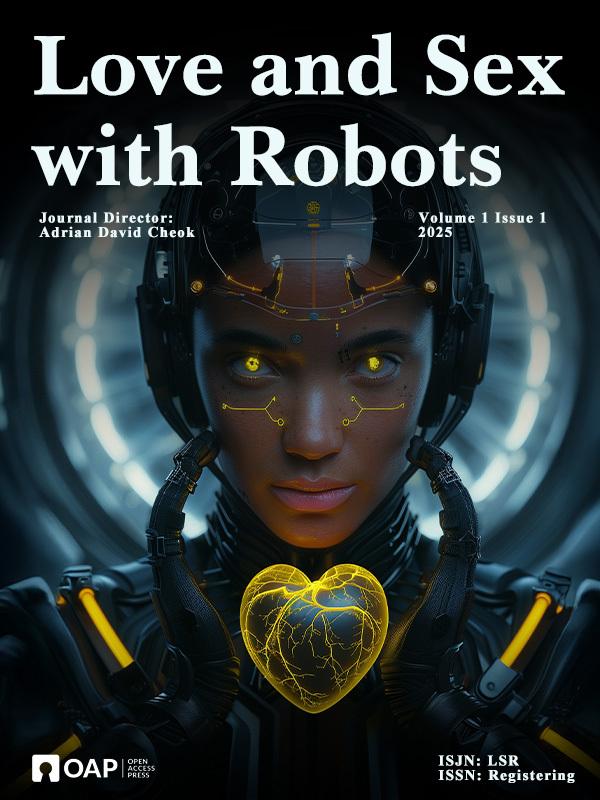Love and Sex with Robots

Editors-in-Chief

International Standard Journal Name (ISJN)
Journals by Subject
-
Exploring intimate human–robot relationships
Investigates both theoretical and applied dimensions of human–robot intimacy—encompassing love, sex, companionship, emotional and psychological aspects, as well as ethical, philosophical, and sociological implications en.wikipedia.org+11mdpi.com+11search.ebscohost.com+11researchgate.net+2deepblue.lib.umich.edu+2search.ebscohost.com+2. -
Technological innovation and design
Encourages research into the design, development, and evaluation of sex, companion, and affective robots (e.g., teledildonics, humanoids, emotional/sentient machines) and the underlying technologies like affective computing and AI-driven emotional intelligence link.springer.com. -
Ethics, philosophy, and robo‑ethics
Examines moral and ethical questions such as consent, manipulation, rights of robots, emotional authenticity, societal impact, and philosophical dimensions of robot sentience mdpi.com+5researchgate.net+5en.wikipedia.org+5. -
Psychological, emotional, and sociocultural perspectives
Studies the psychological and sociological effects of human-robot intimacy, including intimacy models, cultural representations, interpersonal attachment, and identity dspace.library.uvic.ca+3deepblue.lib.umich.edu+3mdpi.com+3. -
Gender, diversity, and representation
Investigates issues of gender portrayal, power dynamics, objectification, inclusivity, and diversity in robot design and marketing direct.mit.edu+7link.springer.com+7deepblue.lib.umich.edu+7. -
Legal, societal, and policy considerations
Addresses legal frameworks—e.g., rights, ethics, welfare—and societal-level impacts of intimate robots dspace.library.uvic.ca+1researchgate.net+1deepblue.lib.umich.edu.
🏛️ Discussion of Scope Elements
1. Range of Topics
Typical subject areas include:
-
Robot emotions, personalities, humanoid design, clone/replica robots, entertainment robots
-
Intelligent sex hardware (teledildonics), affective robotics, electronic intimacy devices
-
Gender theory, psychological models, sociological frameworks, philosophical inquiry deepblue.lib.umich.edu+2mdpi.com+2researchgate.net+2.
2. Interdisciplinary Approach
Blends insights from artificial intelligence, engineering, HRI, psychology, sociology, ethics, law, philosophy, and cultural/media studies .
3. Forms of Contribution
Welcomes empirical studies, theoretical analyses, design research, prototypes, ethical frameworks, cultural critiques, and reviews—underpinned by peer review deepblue.lib.umich.edu+1direct.mit.edu+1.
4. Conferences & Publishing Outlets
The journal/journal scope aligns closely with the International Congress on Love & Sex with Robots and related “Lovotics” symposia, and is featured in MDPI’s Multimodal Technologies and Interaction or Robotics themed special issues en.wikipedia.org+9mdpi.com+9en.wikipedia.org+9.
✅ Summary
The journal aims to serve as an academic home for rigorous interdisciplinary research on intimate human–robot dynamics. It explores everything from robot companionship and sexual technologies, to emotional dynamics and societal implications—encouraging a rich combination of technological innovation, ethical reasoning, cultural critique, and psychological insight. It provides a forum for engineers, psychologists, ethicists, philosophers, legal scholars, and cultural theorists to discuss both the capabilities and the limits ("where is the limit?" question) of love and sex with robots .















